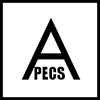Dr Keith S Taber (University of Cambridge Faculty of Education)
In the context of the English school system the government recognises the most able students in academic subjects (such as the sciences) as 'gifted'. The term gifted is contended, but it is important to ensure that the moist able and highest achievers are sufficiently challenges to support their learning. A series of projects and initiatives based in the Faculty of Education have looked at this important issue.
Able Pupils Experiencing Challenging Science
APECS is Able Pupils Experiencing Challenging Science - a project set up in response to concerns about provision for 'gifted' students in science classes. The project has evolved through a number of different phases and activities:
Meeting the Needs of the Most Able in Science
The APECS Project was set up as a collaborative research project between the Universities of Cambridge, Reading and Roehampton. The project was intended to explore the issue of providing suitably challenging experiences for the most able pupils in science lessons. The project was supported by the University of Cambridge Faculty of Education through its research seminar series: 'Meeting the Needs of the Most Able in Science' which ran over three academic sessions.
Project directors:Dr. Keith Taber - University of Cambridge; Prof. John Gilbert - University of Reading (now emeritus); Prof. Mike Watts - University of Roehampton (Now Brunel University)
SEN Consultant: Carrie Winstanley - University of Roehampton
Action Research Consultant: Matthew Newberry - The Cams Hill Science Consortium
The seminar series provided a forum for the research team to meet with interested practitioners - to discuss the issue of meeting the needs of the most able pupils in science classes, and to plan and facilitate classroom-based teacher-research.
Science Education for Gifted Learners
The seminar series provided the basis for the book Science Education for Gifted Learners.
This book (edited by Keith Taber) was published by Routledge in 2007. Reviewers said:
'This book is a very rich source of information about the characteristics and learning needs of students who are deemed to be gifted and provides approaches to teaching that may help such pupils develop... The fascinating nature of the topic and the exceptionally well written chapters make it a worthwhile read for all involved in science education' - School Science Review
'Science Education for Gifted Learners represents an important contribution to the serious examination of teaching science to gifted learners.…The book does and excellent job of exploring the world of science instruction for the gifted. It should prove useful to teachers, administrators of gifted programmes, and researchers interested in this population' - International Journal of Science Education
One teacher posted the following evaluation on a teacher's list (reproduced with permission):
"It is very good value for money as INSET for science teachers on G&T. The first chapter is excellent and should be required reading for all of us and senior management at schools." - Russell Attwood, Northhampton High School posting on 'Biotutor', January 2008.
Teaching About Ideas and Evidence
As part of a government sponsored project through the initial teacher education strand of the National Strategies, Cambridge PGCE students (science teachers in training) looked at how aspects of the nature of science ('how science works') can be a focus for challenging and engaging science education for the most able. We contributed to a KS3 National Strategy project on Teaching About Ideas and Evidence in Science at KS3. Materials from this project were reported on the Strategy website, and distributed by SEP. This work has also been reported in School Science Review and Physics Education.
The curriculum model for the nature of science developed to guide the trainee teachers in their classroom work for this project has been discussed in a paper in the journal Science & Education.
Able Students Collectively Exploring New Demands
During 2004-5 we ran ASCEND (Able Students Collectively Exploring New Demands) - an SEP-funded project. The Faculty of Education worked with the Cambridge Federation of Secondary Schools to develop enrichment provision to challenge high attaining science students at KS4. The ASCEND project was supported by the Gatsby Technical Education Projects' Science Enhancement Programme. The project was staffed by graduate students in the faculty, and welcomed pupils into the faculty as an elective after school programme.
This led to the publication:
Enriching School Science for the Gifted Learner
This book (by Keith Taber), subtitled 'A Guide to Developing Science Provision for Gifted Students' was published with a CD of classroom resources by SEP (2007). The activities were mostly based around 'nature of science' / 'how science works' themes, and were entitled:
- What is science?
- Is there a method to science?
- Learning Science
- Explaining science
- Identifying patterns in science
- Scaffolding individual learning in science
- Integrated science?
- Science in society
- Judging models in science
- Linking science to the everyday world
Challenging Science Days
During the Summer terms of 2008 and 2009 the Faculty has hosted 'Challenging Science Days' for pupils from local secondary schools. These days have drawn upon resources from the 'Enriching School Science for the Gifted Learner' publication, and have been staffed by trainee teachers completing their PGCE year.
International Collaboration on Science Education and the Gifted
Dr Manabu Sumida (Associate Professor, Faculty of Education, Ehime University, Japan), a former academic visitor to the Faculty of Education hosted by the Science, Technology and Mathematics Education Academic Group and Dr Keith S Taber, Chair of the Science, Technology and Mathematics Education Academic Group, have led an international team of scholars to produce new texts exploring perspectives and practices in providing science education for gifted learners. Further details of the international publishing project on science education for the gifted.

